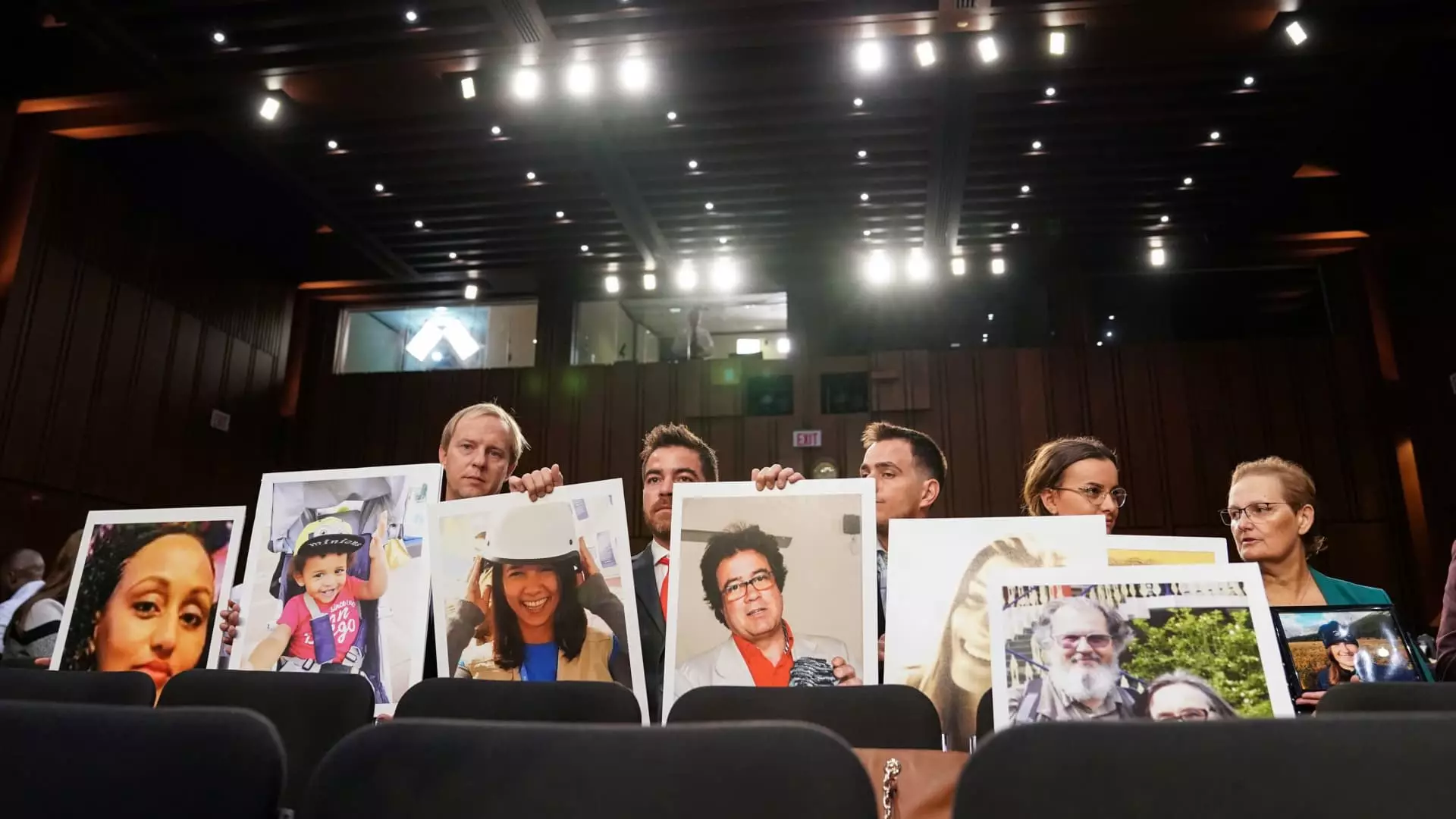In an astonishing miscarriage of justice, the U.S. Justice Department has come to an agreement with Boeing, permitting the aerospace giant to sidestep the severe legal ramifications associated with the tragic crashes of its 737 Max planes that took the lives of 346 people. This non-prosecution agreement, which many are labeling a corporate whitewash, ensures that Boeing will avoid a courtroom showdown and the stigma of a criminal conviction. For the many grieving families of the victims who have sought accountability for years, this decision feels like a dagger in the heart, a dismissive brushstroke against a corporate entity that disregarded safety in favor of profits.
Instead of facing the harsh scrutiny that comes with a trial, the Justice Department claims this arrangement serves the “public interest.” However, one must question whose interests are truly being served. The move appears more aligned with safeguarding Boeing’s economic footprint and the numerous jobs it provides, rather than delivering justice to those who deserved it most. The agreement, which includes a payment of over $1.1 billion, is cloaked in benevolent language, reflecting a dangerous trend where corporate accountability can be bought.
Accountability vs. Leniency: A Troubling Precedent
While the financial commitment of $1.1 billion includes a $487.2 million criminal fine and an investment in safety compliance programs, many see this as merely a Band-Aid solution, failing to penetrate the core issue of corporate malpractice. The arguments presented by the families of the victims are compelling; they demand not just reparations but genuine accountability. It is hard to understand how an agreement that allows for a high-profile company to escape the full brunt of legal consequences can be considered just. Such leniency sets a perilous precedent, potentially emboldening other corporations to prioritize profit over ethical business practices, echoing a sentiment echoed by critics of what they deem “corporate crime.”
Lawyer Paul Cassell, representing the victims’ families, poignantly articulated this frustration: “This kind of non-prosecution deal is unprecedented and obviously wrong for the deadliest corporate crime in U.S. history.” The insistence on a trial reflects the desire for a powerful message to be sent regarding corporate malfeasance. If the scales of justice can be tipped for a company of Boeing’s caliber, what does that mean for average Americans facing less affluent defendants?
Boeing’s Corporate Culture Under Fire
The very notion that Boeing can continue its operations with near impunity post-crisis is alarming. It raises legitimate questions regarding corporate culture penetration within the aerospace manufacturer. Messages revealed during investigations indicate a troubling culture where profitability was prioritized over safety. A former Boeing pilot, Mark Forkner, explicitly stated encouragement to mislead regulators, describing his manipulative strategy as “jedi-mind tricking.” Such attitudes are emblematic of a corporate culture that desperately requires reform.
This scandal is not merely about financial terms; it embodies a societal challenge—how corporations interact with legal accountability. Large companies often enjoy a sweetheart deal through their political influence and financial leverage, a reality that starkly contrasts the plight of lower-income defendants facing legal repercussions. The incident showcases a gaping divide between corporate power players and ordinary citizens, many of whom would never receive similar leniency for lesser offenses.
The Aftermath: More Questions Than Answers
As families mourn those lost in avoidable tragedies, the fallout from this agreement underscores existing skepticism about Boeing’s commitment to safety reforms. The history of legal entanglements, including the prior $2.51 billion penalty in 2021, and the alleged failures to uphold those commitments raises serious doubts about Boeing’s willingness to change. Furthermore, it signals troubling implications for regulatory oversight; if a claim made by Boeing—regarding restoring safety measures—cannot be fully trusted, then what other assurances given to the public can be deemed truthful?
The DOJ’s assertion that” this agreement is a fair and just resolution” rings hollow in the ears of those who feel that justice has been sidelined for corporate convenience. The Department of Justice must consider whether its actions ultimately serve the nation’s foundational belief in accountability and justice—or if they reinforce a disheartening narrative that profits, rather than principles, dictate the true nature of justice in corporate America. The Boeing saga is far from over, and it remains to be seen how history will judge this moment in the face of such overwhelming loss and corporate negligence.

